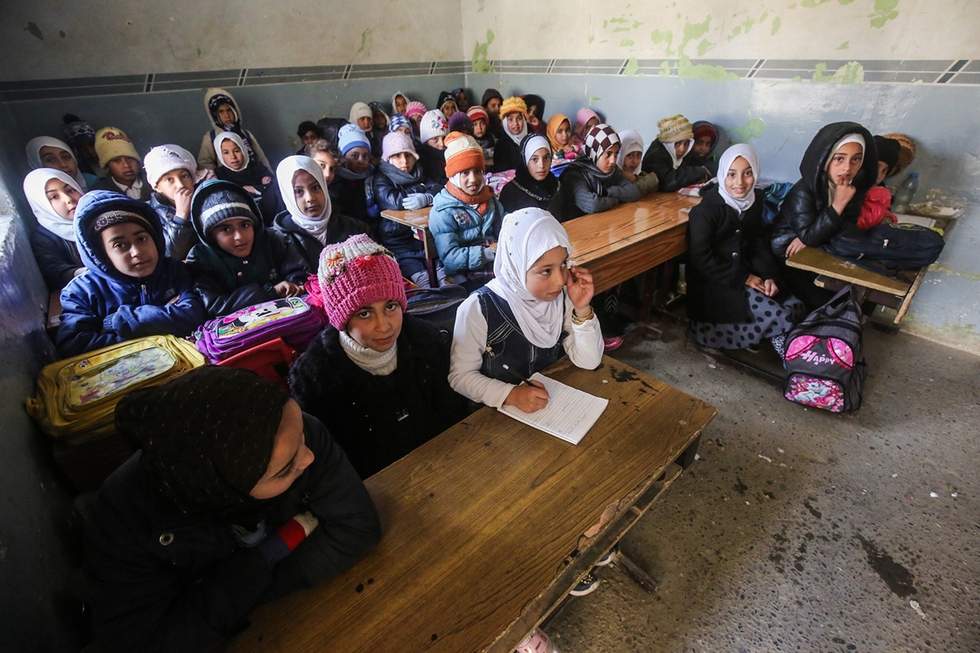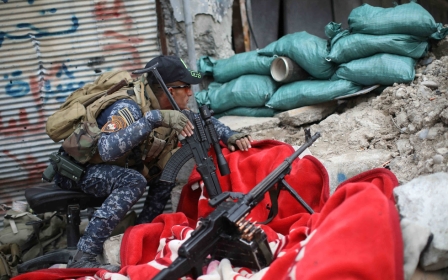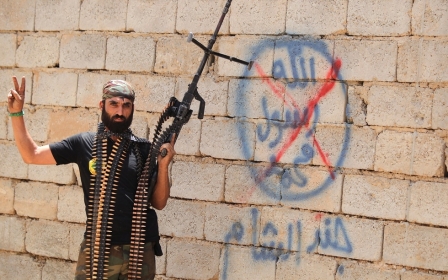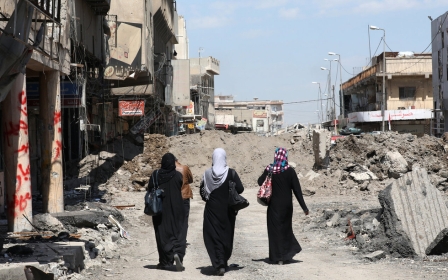'Ignorance is the real enemy': Canadian expert advises Iraq on post-IS education

TORONTO, Canada – A Canadian researcher has travelled to Iraq to advise government officials on how it can reform the education system to better combat militancy, especially in areas previously held by the Islamic State (IS) group.
Herman Deparice-Okomba, executive director of the Centre for the Prevention of Radicalization Leading to Violence in Montreal, said education was used by IS as a tool for indoctrination.
But “the antidote to violent extremism is education,” Deparice-Okomba told Middle East Eye last week, shortly after his visit to Iraq at the behest of the minister of higher education.
“How do we change peoples’ spirits? We use education. As we can be radicalised by education, we can also be de-radicalised by education. Extremism stems from ignorance. Ignorance is really the main enemy,” he said.
Two education systems
Deparice-Okomba said the advance of IS into Iraq’s major cities created two separate education systems: one managed by the group, and another run by the central Iraqi government in Baghdad.
The group took control of Mosul, the country’s second-largest city, in June 2014, and deadly fighting to retake the city is ongoing between IS militants and US-backed Iraqi forces.
Hundreds of thousands of Iraqis were displaced due to the militant group’s advance and the ongoing war. But many families, unable to leave, were forced to live under strict rules in IS-controlled areas.
Many Iraqi parents in those cities kept their children out of school altogether, for fear that they would be radicalised by the group’s curriculum, and some tried to teach their children at home instead, explained Laila Ali, a media officer with UNICEF in Iraq.
Academically, those children who lived under ISIL, they are behind the rest of their peers in Iraq
- Laila Ali, UNICEF media officer
Other parents also kept older children inside as often as they could, for fear that they might be recruited into the militant group, she explained.
“So these children also had very limited space to actually play, in...or outside of school. I’ve met girls who were practically just kept indoors for more than two years,” she told Middle East Eye.
“Academically, those children who lived under ISIL, they are behind the rest of their peers in Iraq,” she explained, using a different acronym for the group.
Ali said that about 1.2 million children have been taken out of school because of displacement across Iraq.
But temporary learning spaces have been set up for children in internally displaced persons camps, and many now have access to formal education – math, Arabic, English – and informal learning, like play time, she said.
Social workers and trained psychologists also provide psychosocial support for children who have been particularly traumatised by the war.
At least 30 schools have also reopened in East Mosul since January, allowing about 16,000 Iraqi children to resume their studies, UNICEF said. Another 40 schools are expected to reopen shortly, which would bring another 40,000 students back to class.
Ali said she met a six-year-old girl who saw her sister die after a mortar landed in East Mosul. The girl “withdrew into herself and stopped speaking,” Ali explained.
But over a period of a few weeks in the camp, where she was able to learn and play with other children, and receive one-on-one attention, the young girl slowly began speaking again.
“I think for the vast majority of children, being back in school, or going to a facility where they can play, and being in a safe environment, can go a long way in helping them heal, if not completely overcome, what they may have witnessed,” Ali said.
Mending mistrust
Deparice-Okomba said some Iraqi children did learn IS' curriculum in Iraq, which he described as “very indoctrinated”.
He pointed to a textbook exercise for arithmetic as only one example. “They teach students mathematics with bullets. For example, seven bullet casings plus one bullet casing equals eight bullet casings,” he said.
Deparice-Okomba said Iraqi officials must emphasise critical thinking among students to counter what they may have learned. Additionally, any educational reforms should stress Iraq’s history of multiculturalism and tolerance, and promote national reconciliation.
They teach students mathematics with bullets. For example, seven bullet casings plus one bullet casing equals eight bullet casings
- Herman Deparice-Okomba, executive director of Centre for the Prevention of Radicalization Leading to Violence
Equally important is strengthening psychosocial support within the education ministry.
He said that while “Canada is not Iraq,” the strategies to deal with radicalised youth - whether it’s a Canadian teenager who decides to join IS in Syria, or an Iraqi child exposed to indoctrination at school - are the same.
The Montreal centre stresses a community-based approach in the first instance to de-radicalise youth; getting community and religious leaders, parents, and other family members involved.
“The long-term effects will come through education and awareness. We have to bet on education to be more effective in the long-term,” Deparice-Okomba said.
Ali, meanwhile, stressed that children who may have attended IS-run schools in Iraq should be given an opportunity to attend regular schools. “We must be very careful not to stigmatise these children because at the end of the day children are children,” she said.
Education can also help heal some of the mistrust and rifts that have been exacerbated in Iraq between religious groups and various sects, and between communities with opposing political views, due to the war, she added.
“Education can go a long way in helping heal some of the divisions and suspicions that currently exist in the Iraqi society and help develop a cohesive society.”
Stay informed with MEE's newsletters
Sign up to get the latest alerts, insights and analysis, starting with Turkey Unpacked
Middle East Eye delivers independent and unrivalled coverage and analysis of the Middle East, North Africa and beyond. To learn more about republishing this content and the associated fees, please fill out this form. More about MEE can be found here.




